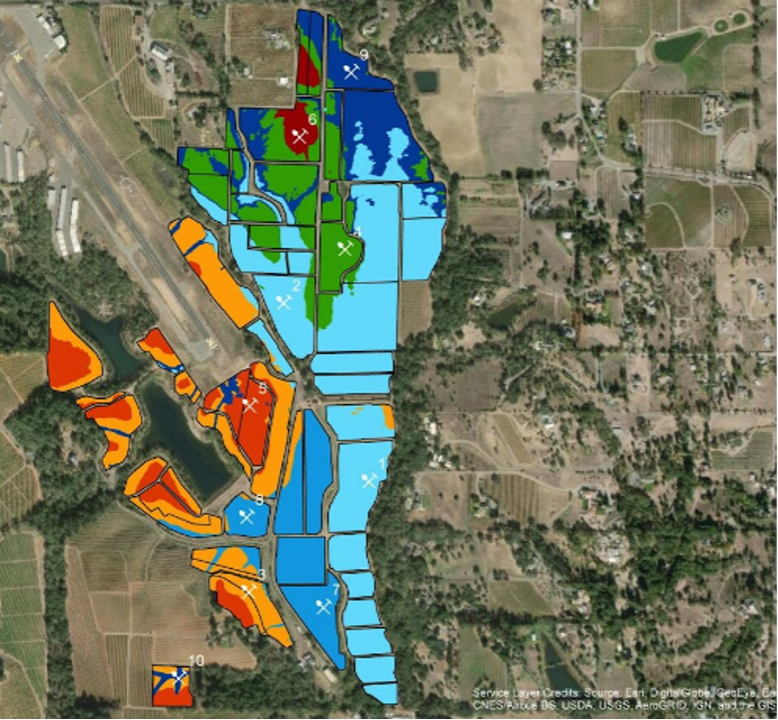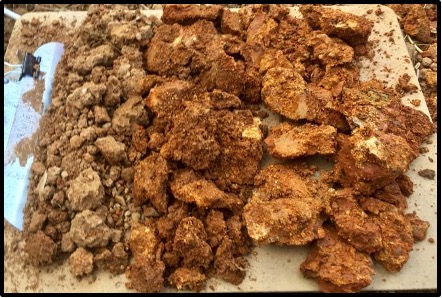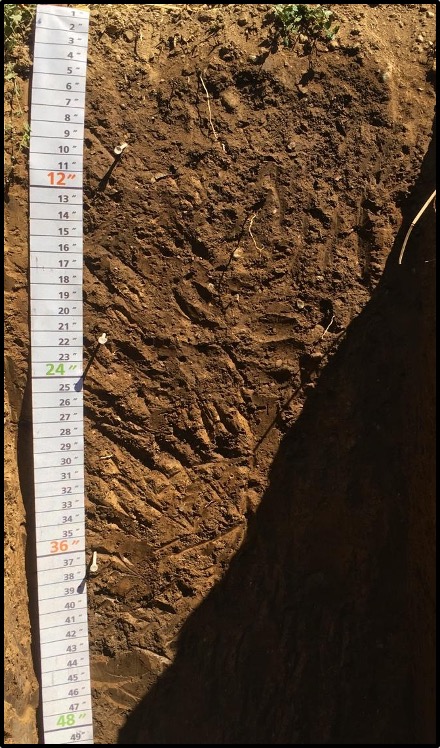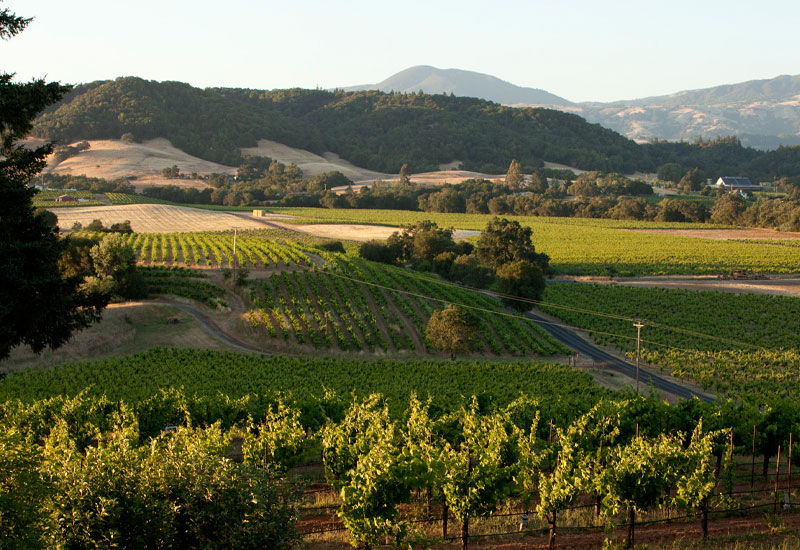Surveying Soils at Lytton Springs
Blog Post
February 2023
One requirement of our viticulturists is that they must speak more than one farming language. They not only need to understand the intricacies of growing wine grapes; they must also use the vernaculars of weather, of chemistry, and of soil. Here, Mauro Maldonado, resident Viticulturist at Lytton Springs, writes about the process of surveying soil types at the Lytton Estate.
Dig Deeper: Understanding Soil
Soil is not dirt… Soil is the natural medium needed for plants to grow. It is biologically active and made up of minerals, organic matter, gasses, and water. It’s complex. The types of mineral particles can influence soil texture, while soil organic matter made up of plant, animal, and microbial residues can influence the structure and quality of the soil.
Understanding these living and non-living components of the soil is crucial for premium grape growing, not only to help us determine what rootstocks and varieties to plant, but also to better manage and protect this pivotal resource.
We regularly conduct soil surveys at our estates to better understand the land. We dig a large hole– about 5 feet deep–to get a profile view of the layers of soil. This survey tells us about soil composition and structure, giving us insight into many aspects of our farming. These profiles can change drastically based on the location and landscape.
Soil Types Found at Lytton Springs
At the southeastern boundary of Dry Creek Valley, we farm close to 200 acres spread across 2 main vineyards. Here you will find vineyard blocks on “valleys,” slopes, and bench lands. The four main soil series found are:
- Arbuckle gravelly loam
- Clough gravelly loam
- Pleasanton gravelly loam
- Sites loam
During a deeper study in 2019, seven soil functional classes were recorded at Lytton Springs, each different in physical and chemical properties.


The Low Areas: Abundant Organic Matter
Soil functional class 2 makes up most of the acreage at Lytton Estate West that runs on the low areas. This class is consistent with the Arbuckle series and is a moderately well drained soil. The surface and subsurface are made up of clay loam with gravelly fragments throughout. This gravelly clay loam allows for roots to grow deep and reach into pores. The organic matter at the surface is 2.3% while the subsurface is 2.0%. This organic matter is crucial for soil health since it’s what “feeds” the soil.

The Slopes & Benchland: More Acidic Soils
The soils on slopes towards the benchland fall under classes 1 and 3. These belong to Sites and Suther soil series, which are usually found in mountains and slopes. They can be moderately deep and well drained. Organic matter is typically lower, and the pH for these tend to be more acidic than the others on the property.
Using our Findings to Optimize Soil & Vine Health
It’s important to keep in mind that even within the seven functional classes there can be variability. For example, in 2020 as we dug soil pits in a 5-acre block; within this block, we observed two very different soil profiles. In the first, we found clay loam in the upper horizons, and, as we dug down around 4ft, a massive layer of heavy clay began and no penetration of roots was observed. When we dug a second pit about 200ft west of the first, the top soil was gravelly loam, consistent to the Arbuckle series, and, as we reached 3ft depth, it dramatically changed into river bed, where lots of sedimentary rock were seen. Water percolated through the rock and you could easily see vine roots growing to 5ft (depth of the pit).

Knowing the characteristics of soils throughout the vineyard helps us manage them better and plant accordingly. For example, knowing that the soils in classes 1 and 3 are more acidic allows us to apply amendments accordingly to raise the pH, which will allow for better uptake of nutrients and prevent certain toxicities that may occur in acidic soils. Knowing where areas of heavy clay are allows us to plant rootstock that perform better in heavy clay and use others in areas that have more gravel and loam.
The Ultimate Goal: Responsibly Grown Wine
As organic farmers, we strive to achieve healthy soils that can sustain our vineyards. We plant cover crops that yield high biomass and fix nitrogen, while also tilling only half of our acreage to build and maintain good soil structure. Each of these vineyard practices emphasize healthy vines and exceptional fruit quality, ultimately leading to responsibly grown, great tasting wine.
–Mauro Maldonado, Lytton Springs Viticulturist
Related Links
Wait!
In order to qualify for user related discounts, you must log in before proceeding with checkout. Click the button below to log in and receive these benefits, or close the window to continue.
Log In